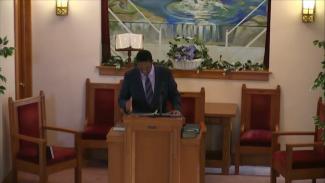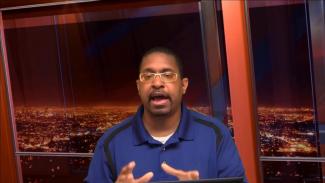Topic: Building Faith
To see more broadcasts select show names, a year, or all video media.How important was unity to the early church? How did Paul endeavor to keep unity? On what matters did he stick to principle? Why was the early church split over issues like circumcision and the customs of Moses? What can we learn from them about unity and dealing with conflict? Can the church always be united? Were the apostles always in agreement?
As we conclude our study on the books of 1st and 2nd Peter, what are the major themes brought out in these epistles? What does Peter have to say about persecution, the suffering of Christ, the Second Coming, and the Judgment? What do these things mean for Christian faith and practice? Are Christians saved by grace to continue in sin? How did Peter view the importance of Scripture?
Part 4 to the presentation on the Bible, Pastor Mirra discusses manuscript evidence making a compelling case for belief in the Bible. How does the Bible's reliability compare with that of other ancient manuscripts like the writings of Socrates, Plato, and other historical figures? Does the record show we can trust the Bible? What does all this mean for God's presence in our lives today?
Peter warns of false teachers that would invade the early church. Does the church still struggle with false teachers today? What were they teaching in Peter’s time? What hints do we have about these individuals in the writings of Peter, Paul, and Jude? What does freedom in Christ really mean? Are we free to live in sin? What effect do false teachers have on the church?
How did Peter describe the Christian experience? What virtues of Christianity did he emphasize? Do Christians have a role to play in the salvation experience? What is the most important virtue of all? How did Peter view the life after death experience? What did he mean by putting off my tabernacle? As Peter writes his final letter before following Jesus to the cross, what can we learn and apply to our lives today?
What is true greatness? How did Jesus define what it means to be great? How did Jesus believe those who are great should treat people? How can we compare this with our society today and the way it treats people? What are the ways in which we still break the first and second commandments today? Do we still have images or other gods in our lives? What are the things we still idolize? The book of Matthew illustrates instances in which people, like the rich young ruler, put possessions before God. Many were not willing to surrender everything and entrust it to God.
This week Pastor Michael Mirra focuses on attacks against the Word of God and the inclination of man to resist and not hear or listen to the Word of God. There were times in history when the Bible was not always available to the common person. But was the Bible meant to be read and available to everyone? Were the dark ages because of the Bible, or did the Bible bring us out of the dark ages? Why are there so many who twist the word of God? How do we know that Moses really wrote the first five books? What was so special about Moses?
Elder John Spellman preaches on the Elisha and the healing of the waters of Jericho that were cursed for many years using a cruse of salt. What special message might this hold for us today? Are we like the living water or the corrupted water that makes the land barren?












